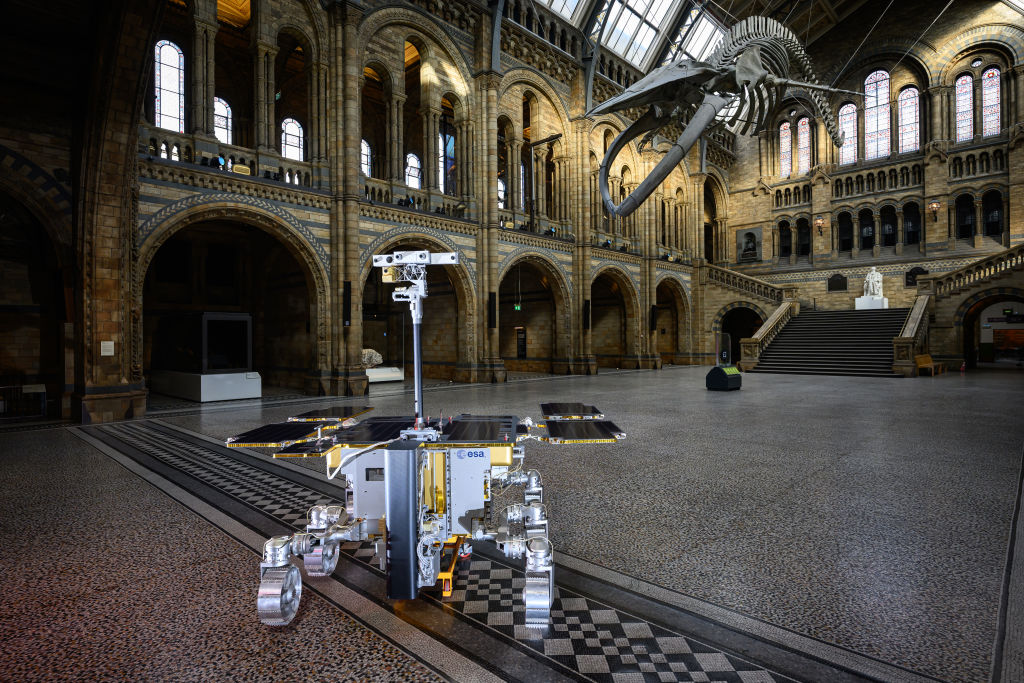Entertainment
Anglofuturism Sparks Controversy Over Britain’s Future Vision

Anglofuturism, a cultural movement blending nostalgia and futuristic aspirations, has emerged as a controversial idea within British political and social discourse. This concept, which envisions a technologically advanced yet culturally homogeneous Britain, gained attention following a June 2023 statement by Robert Jenrick, a prominent figure in the Conservative Party. Jenrick described himself as an “Anglofuturist” during the “Now and England” conference, underscoring the rising prominence of this ideology in contemporary Britain.
The term “Anglofuturism” was popularized by writer Aris Roussinos in a 2022 essay published in UnHerd. He posited that Britain requires a bold program of national renewal rooted in the “best of the past.” Supporters of this movement envision a future where tradition and technology coexist, suggesting a return to Britain’s cultural dominance reminiscent of the Victorian era while integrating advanced technologies expected by the 2050s. Yet, this vision has been met with skepticism, as it raises fundamental questions about identity and progress.
Contradictions and Cultural Context
At its core, Anglofuturism reflects a desire to preserve a distinctly white British cultural identity, echoing sentiments found in other cultural movements such as Afrofuturism. While Afrofuturism seeks to empower historically marginalized communities by envisioning alternative futures, Anglofuturism is often criticized as a philosophy rooted in self-pity. It longs for a bygone era where Britain exerted significant global influence, conveniently ignoring the colonial implications of such dominance.
The nostalgic longing encapsulated in Anglofuturism evokes a sense of melancholy, akin to the concept of “hüzün” articulated by Orhan Pamuk. This collective sadness stems from the decline of an empire and the struggle to reconcile a proud past with a less certain present. As the movement gains traction, proponents express concerns that Britain has become a “museum island,” yet their response is not one of reflection but rather a push for reconstruction. This restorative nostalgia, as described by cultural theorist Svetlana Boym, suggests that the past can be rebuilt if the right aesthetic choices are made.
Political Implications and Future Challenges
Anglofuturism presents a complex paradox for a multicultural society. It raises critical questions about the feasibility of reconnecting with a historical identity that was not inclusive. The movement’s advocates often articulate a desire for a future “made in Britain,” yet they frequently grapple with the reality that such a vision may be incompatible with the nation’s current demographic and cultural landscape.
The Conservative Party, which has been characterized as increasingly gerontocratic, faces challenges in delivering on infrastructure promises and addressing the needs of a changing society. The stark contrast between the rhetoric of a bold future and the reality of delayed projects serves to highlight the appeal of Anglofuturism. It offers a comforting narrative of a Britain that “once did great things” and might do so again, even as the party struggles with practical governance.
In this context, Anglofuturism seems to thrive on nostalgia, promising comfort while simultaneously magnifying the absence of progress. The movement’s emphasis on restoring past symbols rather than mourning their loss suggests a refusal to confront the complexities of modern identity and history. As Britain navigates a rapidly changing world, Anglofuturism serves as both a reflection of societal anxieties and a potential hindrance to forward-thinking solutions.
The implications of Anglofuturism extend beyond cultural discussions. If embraced by political leaders, it risks cementing a vision of the future that is stifled by an inability to evolve. As the nation grapples with pressing issues such as climate change, social inequality, and technological advancement, the challenge remains: can a society anchored in nostalgia and a selective past truly envision a viable future? The trajectory of Anglofuturism may ultimately reveal more about contemporary Britain than its proponents anticipate.
-

 Health3 months ago
Health3 months agoNeurologist Warns Excessive Use of Supplements Can Harm Brain
-

 Health3 months ago
Health3 months agoFiona Phillips’ Husband Shares Heartfelt Update on Her Alzheimer’s Journey
-

 Science1 month ago
Science1 month agoBrian Cox Addresses Claims of Alien Probe in 3I/ATLAS Discovery
-

 Science1 month ago
Science1 month agoNASA Investigates Unusual Comet 3I/ATLAS; New Findings Emerge
-

 Science4 weeks ago
Science4 weeks agoScientists Examine 3I/ATLAS: Alien Artifact or Cosmic Oddity?
-

 Entertainment4 months ago
Entertainment4 months agoKerry Katona Discusses Future Baby Plans and Brian McFadden’s Wedding
-

 Science4 weeks ago
Science4 weeks agoNASA Investigates Speedy Object 3I/ATLAS, Sparking Speculation
-

 Entertainment4 months ago
Entertainment4 months agoEmmerdale Faces Tension as Dylan and April’s Lives Hang in the Balance
-

 World3 months ago
World3 months agoCole Palmer’s Cryptic Message to Kobbie Mainoo Following Loan Talks
-

 Science4 weeks ago
Science4 weeks agoNASA Scientists Explore Origins of 3I/ATLAS, a Fast-Moving Visitor
-

 Entertainment4 months ago
Entertainment4 months agoLove Island Star Toni Laite’s Mother Expresses Disappointment Over Coupling Decision
-

 Entertainment3 months ago
Entertainment3 months agoMajor Cast Changes at Coronation Street: Exits and Returns in 2025









